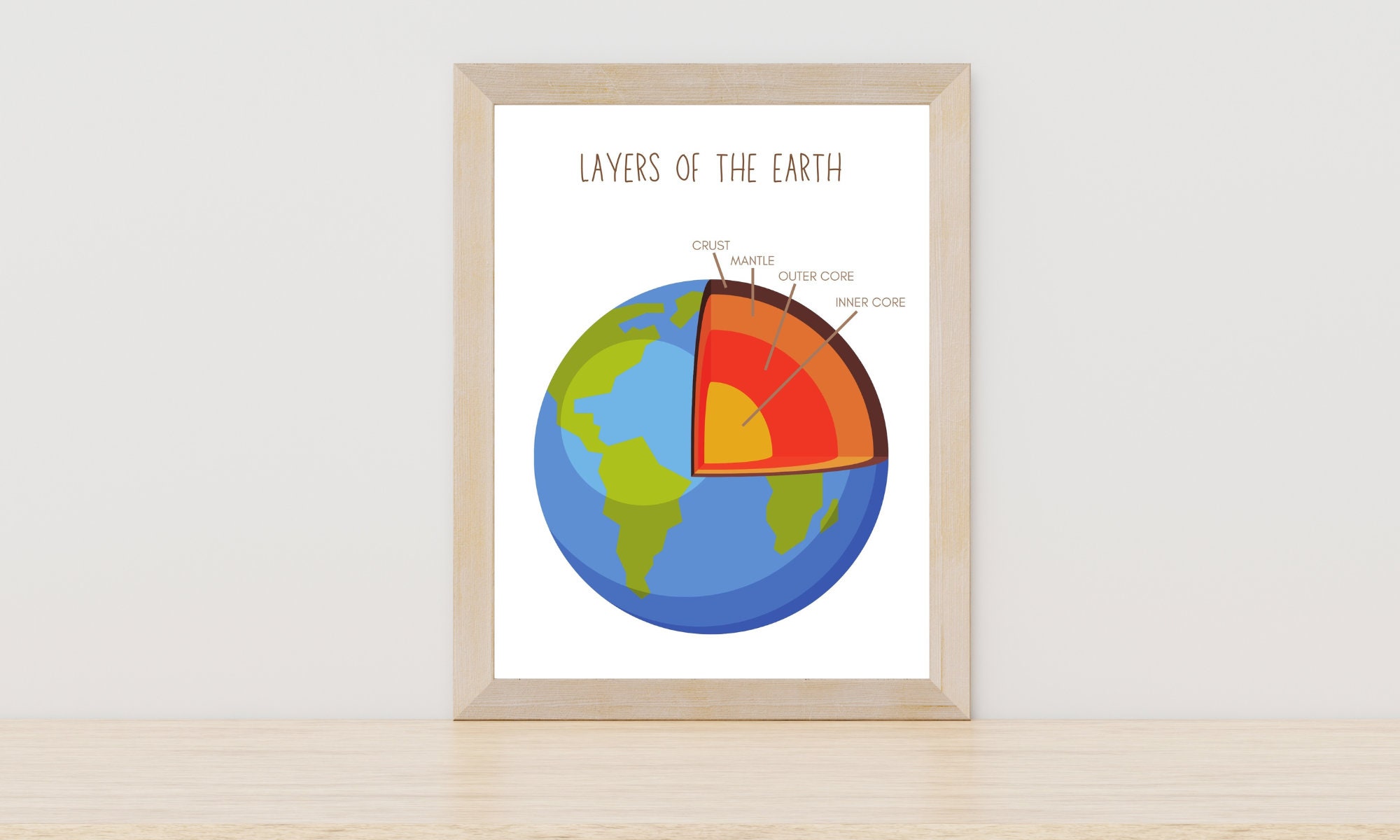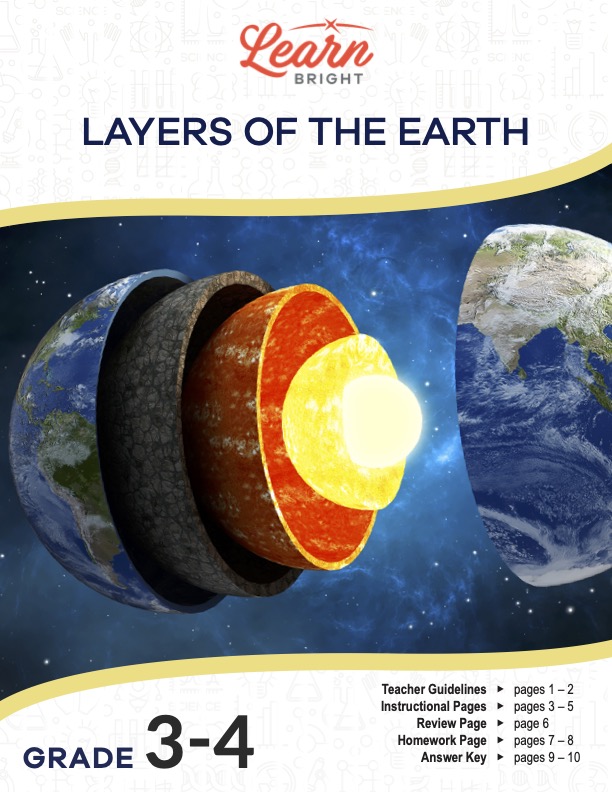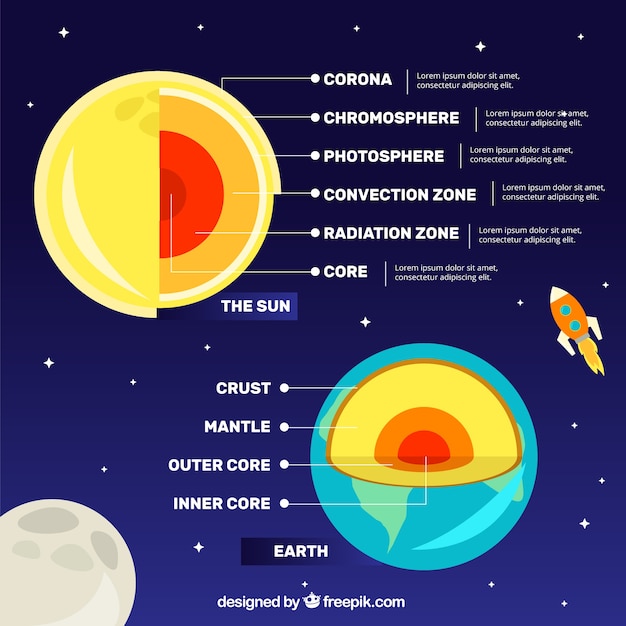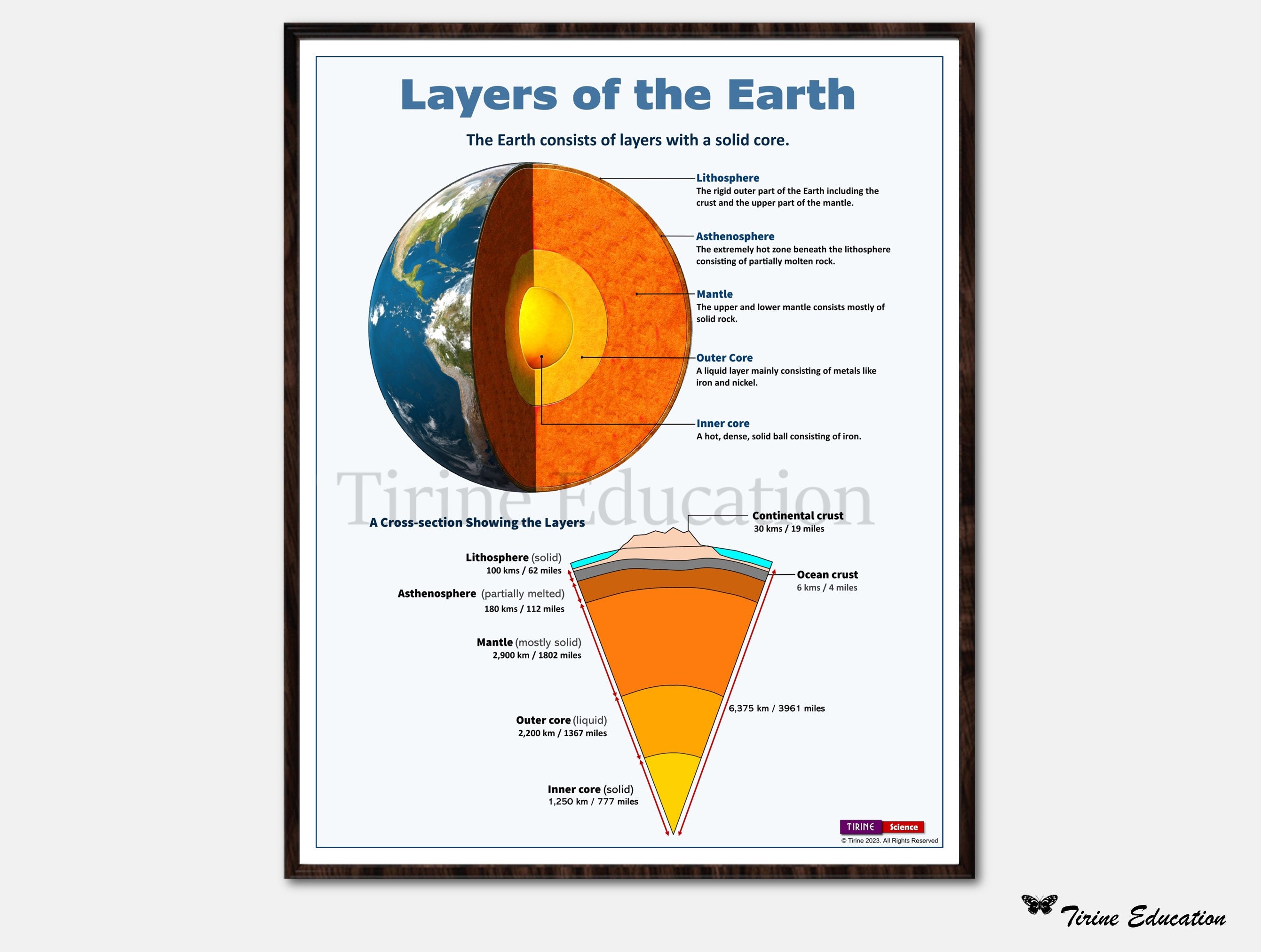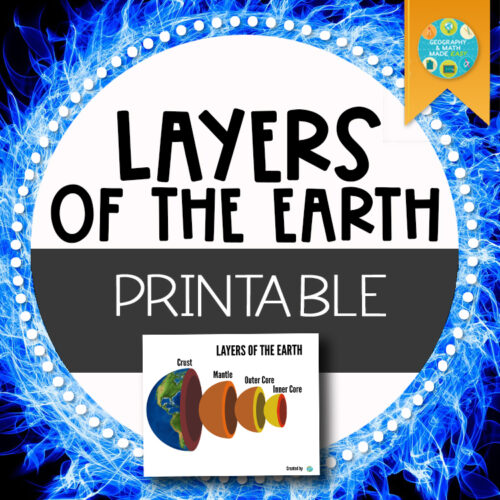Layers Of The Earth Brochure
Layers Of The Earth Brochure - This document describes the layers of the earth from the crust to the core. This document describes the layers of the earth, including the inner core, outer core, mantle, and crust. The earth’s layers, including the crust, mantle, outer core, and inner core, play a pivotal role in shaping the geological structures that we inhabit and observe today. The crust, the mantle, and the core. These divisions are based on differences in chemical. What are the 7 layers of earth? To really understand earth, you need to travel thousands of. How does the composition of rock change across the lithosphere/asthenosphere boundary? ∼ 2830 kg/m3 at the continental crust and ∼ 3000 kg/m3 at the oceanic crust it is the outermost and thinnest layer of our planet and is least dense. The core accounts for almost half of earth’s radius, but it amounts to only 16.1% of earth’s volume. In the layers of the earth diagram above, you can see each distinct layer is visually represented. Thinnest yet most solid outermost layer of earth where humans live. How does the composition of rock change across the lithosphere/asthenosphere boundary? Earth consists of three main compositional layers: The crust, the mantle, and the core, which is divided into the outer core and the inner core. To really understand earth, you need to travel thousands of. Layers are defined by composition; The crust, the mantle, and the core (figure 3.4). This document describes the layers of the earth, including the inner core, outer core, mantle, and crust. These layers are based on chemical. How does the composition of rock change across the lithosphere/asthenosphere boundary? Contains hot dense liquid material,. The seven layers of earth are as follows: These layers are based on chemical. In the layers of the earth diagram above, you can see each distinct layer is visually represented. Contains hot dense liquid material,. Earth consists of three main layers: The earth’s layers, including the crust, mantle, outer core, and inner core, play a pivotal role in shaping the geological structures that we inhabit and observe today. How does the composition of rock change across the lithosphere/asthenosphere boundary? While often simplified into four primary layers (crust, mantle, outer core,. These layers are based on chemical. This document describes the layers of the earth from the crust to the core. The crust, the mantle, and the core. ∼ 2830 kg/m3 at the continental crust and ∼ 3000 kg/m3 at the oceanic crust it is the outermost and thinnest layer of our planet and is least dense. The crust, the mantle,. ∼ 2830 kg/m3 at the continental crust and ∼ 3000 kg/m3 at the oceanic crust it is the outermost and thinnest layer of our planet and is least dense. Layers are defined by composition; Contains hot dense liquid material,. The crust, the mantle, and the core. Binocs as he explores the three distinct layers of earth, providing an engaging and. The earth’s layers, including the crust, mantle, outer core, and inner core, play a pivotal role in shaping the geological structures that we inhabit and observe today. ∼ 2830 kg/m3 at the continental crust and ∼ 3000 kg/m3 at the oceanic crust it is the outermost and thinnest layer of our planet and is least dense. This document describes the. This document describes the layers of the earth, including the inner core, outer core, mantle, and crust. It explains that the inner core is solid due to extreme pressure and temperature, while scientists can infer. What are the 7 layers of earth? Each layer has physical variations due. The earth’s internal structure can be broadly classified into three major categories: ∼ 2830 kg/m3 at the continental crust and ∼ 3000 kg/m3 at the oceanic crust it is the outermost and thinnest layer of our planet and is least dense. Each layer has physical variations due. The crust, the mantle, and the core. Thinnest yet most solid outermost layer of earth where humans live. It notes that the inner core is. Each layer has physical variations due. Earth consists of three main layers: It explains that the inner core is solid due to extreme pressure and temperature, while scientists can infer. This reading focuses on the earth's core, explaining its. The earth’s layers, including the crust, mantle, outer core, and inner core, play a pivotal role in shaping the geological structures. Layers were deduced by sir isaac newton (1700) to inge lehmann (1937) earth’s 3 main layers: Contains hot dense liquid material,. Each layer has physical variations due. ∼ 2830 kg/m3 at the continental crust and ∼ 3000 kg/m3 at the oceanic crust it is the outermost and thinnest layer of our planet and is least dense. To really understand earth,. To really understand earth, you need to travel thousands of. Each layer has physical variations due. The crust, the mantle, and the core. In the layers of the earth diagram above, you can see each distinct layer is visually represented. Earth consists of three main compositional layers: It explains that the inner core is solid due to extreme pressure and temperature, while scientists can infer. What are the 7 layers of earth? The crust, the mantle, and the core (figure 3.4). Layers were deduced by sir isaac newton (1700) to inge lehmann (1937) earth’s 3 main layers: The crust, the mantle, and the core, which is divided into the outer core and the inner core. While often simplified into four primary layers (crust, mantle, outer core, and inner core), geoscientists recognize a more nuanced structure, further dividing these major sections. The four layers of the earth are the inner core, outer core, mantle, and crust. In the layers of the earth diagram above, you can see each distinct layer is visually represented. This document describes the layers of the earth from the crust to the core. Thinnest yet most solid outermost layer of earth where humans live. Earth consists of three main layers: The crust, the mantle, and the core. The earth’s internal structure can be broadly classified into three major categories: Each layer has physical variations due. How does the composition of rock change across the lithosphere/asthenosphere boundary? Binocs as he explores the three distinct layers of earth, providing an engaging and educational overview suitable for kids.Layers of the Earth Poster, Earth Poster, Earth Science Poster
Teaching them how...
Layers of the Earth, Free PDF Download Learn Bright
Information Technology Sample Brochure Layers of the Earth
Information Technology Sample Brochure Layers of the Earth
Free Vector Infographic about the layers of the earth
Layers of the Earth Science Poster, Science Poster, Educational Poster
Layers of The Earth PDF Seismology Core
Our Earth Earth's Structure Poster Tiger Moon
Geography & Science Layer of the Earth Poster and Printable Classful
The Earth’s Layers, Including The Crust, Mantle, Outer Core, And Inner Core, Play A Pivotal Role In Shaping The Geological Structures That We Inhabit And Observe Today.
These Divisions Are Based On Differences In Chemical.
It Notes That The Inner Core Is Solid Due To Extreme Pressure And Temperature, While The.
This Reading Focuses On The Earth's Core, Explaining Its.
Related Post:
